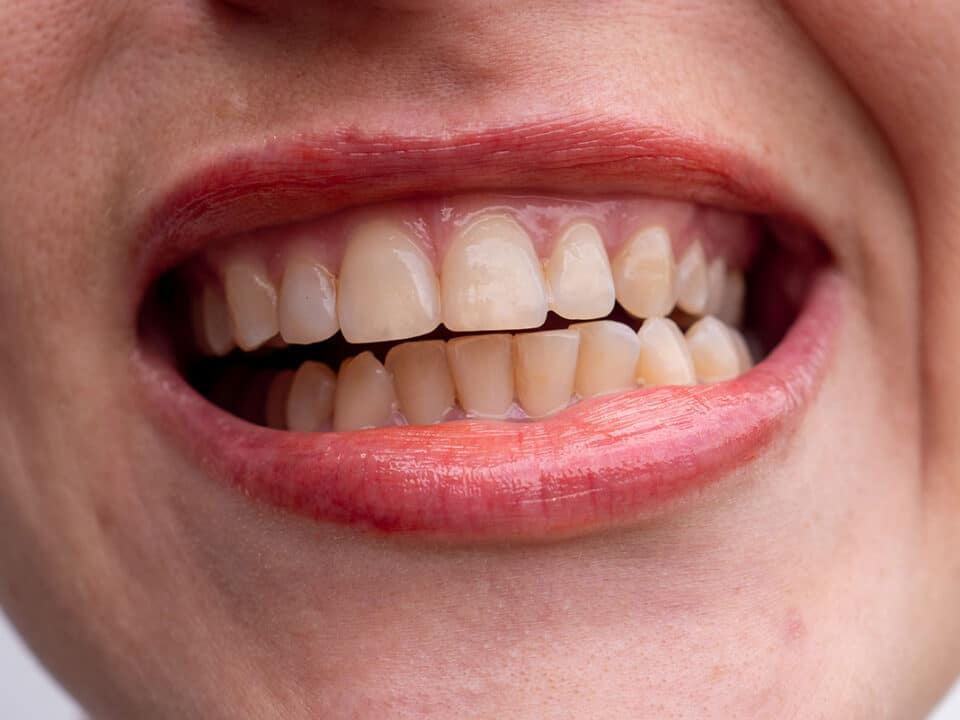Taking care of your oral health is critical to maintaining not only a healthy smile but also your overall well-being. Many dental issues start small but can escalate into major problems if left untreated. Recognizing when it’s time to see a dentist can save you from pain, discomfort, and costly procedures down the line. Here are 6 signs you need to see a dentist ASAP:
Table of Contents
1. Persistent Tooth Pain or Sensitivity
Tooth pain, especially when it lingers or intensifies, is often a sign that something is wrong. It could be due to a variety of causes, including tooth decay, a cracked tooth, or an infection. Sensitivity to hot, cold, or sweet foods and beverages can also indicate underlying issues such as cavities or enamel erosion. Persistent pain and sensitivity are not normal and require immediate attention to prevent further complications like infections or abscesses.
What it could mean:
- Cavities
- Enamel erosion
- Tooth fracture
- Infection or abscess
Possible Treatments:
- Cavity treatment: If decay is causing the pain, a filling or crown may be recommended to restore the tooth.
- Root canal: If the tooth pain is due to infection or decay deep inside the tooth, a root canal may be necessary to remove the damaged pulp and save the tooth.
- Desensitizing toothpaste: For mild sensitivity, your dentist may recommend desensitizing toothpaste to help protect exposed nerves and reduce discomfort.
2. Bleeding or Swollen Gums
If your gums bleed frequently, particularly when brushing or flossing, it may be a sign of gum disease (gingivitis or periodontitis). Swollen or tender gums are another red flag. While some bleeding during brushing can be normal, consistent bleeding is not. Gum disease, if left untreated, can lead to tooth loss and other health problems such as heart disease or diabetes complications.
What it could mean:
- Gingivitis (early-stage gum disease)
- Periodontitis (advanced gum disease)
- Plaque buildup or infection
Possible Treatments:
- Deep cleaning (scaling and root planing): A deep cleaning removes plaque and tartar from below the gum line, reducing inflammation and preventing further damage.
- Antibiotic treatments: Your dentist may prescribe antibiotic mouth rinses or oral antibiotics to eliminate infection and promote gum healing.
- Periodontal surgery: For advanced cases of gum disease, surgical intervention may be necessary to reduce deep pockets and regenerate lost tissue.
3. Loose or Shifting Teeth
Adult teeth should be stable and firm. If you notice any movement in your teeth or if your bite feels different, it’s a major sign of concern. Teeth can become loose due to advanced gum disease, trauma, or bone loss. In many cases, catching this early with the help of your dentist can prevent tooth loss.
What it could mean:
- Advanced Periodontitis
- Bone loss around the teeth
- Tooth injury or trauma
Possible Treatments:
- Splinting: To stabilize loose teeth, a dentist may use a splint that attaches to neighbouring teeth, keeping the loose tooth in place.
- Gum treatment: If gum disease is causing the teeth to loosen, deep cleanings and periodontal therapy can help restore stability.
- Bone grafts: In cases of bone loss, bone grafting may be necessary to regenerate lost bone tissue and support the teeth.
4. Chronic Bad Breath or Unpleasant Taste
Persistent bad breath (halitosis) or a constant bad taste in your mouth could be a sign of oral infections or gum disease. While temporary bad breath is normal, chronic halitosis may indicate bacteria festering in your mouth, often due to gum disease, cavities, or other dental problems. These issues can worsen over time and impact your confidence and health if not addressed.
What it could mean:
- Gum disease
- Tooth decay
- Infection or abscess
Possible Treatments:
- Professional cleaning: A professional dental cleaning can remove plaque and tartar and help eliminate the bacteria that cause bad breath.
- Gum disease treatment: Treating the underlying cause, such as gum disease or decay, will typically resolve chronic halitosis.
- Cavity fillings: If tooth decay is the source of the odour, a filling or crown may be used to restore the tooth and eliminate the bacteria causing the bad breath.
5. Jaw Pain or Clicking
Jaw pain, clicking, or discomfort while chewing can be a sign of TMJ disorders (temporomandibular joint disorders). If you hear clicking or popping when you move your jaw, or if you experience stiffness or pain near your ears or jaw muscles, it’s a signal that your jaw joint might not be functioning properly. TMJ disorders can cause chronic pain and discomfort, and your dentist can help identify the cause and provide treatment to alleviate the issue.
What it could mean:
- TMJ disorder
- Jaw injury
- Teeth grinding (bruxism)
Possible Treatments:
- Nightguards or mouthguards: If teeth grinding (bruxism) contributes to TMJ pain, a custom-made nightguard or mouthguard can prevent further damage and reduce discomfort.
- Physical therapy: Exercises designed to strengthen jaw muscles and improve joint movement can alleviate TMJ pain.
- Surgery: In severe cases of TMJ disorder, surgery may be necessary to realign the jaw or repair damaged joint structures.
6. Sores, Lumps, or Patches in Your Mouth
Any unusual sores, lumps, or patches in your mouth that persist for more than a week should be evaluated by a dentist. This includes ulcers, white or red patches, or unexplained sores that don’t heal. While some sores are harmless, persistent changes in the tissue of your mouth can be early signs of oral cancer or other serious conditions. Early detection can be life-saving, so don’t ignore unusual symptoms.
What it could mean:
- Oral cancer
- Infections
- Mouth ulcers or sores
Possible Treatments:
- Biopsy: If your dentist suspects a sore or lump may be cancerous, a biopsy will be performed to determine whether cancerous or precancerous cells are present.
- Antiviral or antifungal medications: Medications can be prescribed to resolve oral infections such as cold sores or thrush.
- Surgery: In cases of oral cancer, surgical removal of the affected tissue, along with follow-up treatment like chemotherapy or radiation, may be necessary.
Conclusion
Your oral health is vital to your overall well-being, and ignoring these warning signs can lead to serious consequences. If you’re experiencing any of these symptoms, seeing your dentist as soon as possible is essential. Early intervention can prevent further complications and help you maintain a beautiful smile.
If it’s been a while since your last dental visit or you’re experiencing any of these issues, schedule an appointment with your dentist to get the proper care you need.
By being proactive and recognizing these signs, you can prevent minor dental issues from escalating into more severe conditions, protecting both your oral and general health. Also, don’t neglect to check out our new article on common reasons for tooth pain.
Check us out on Facebook and Twitter for daily information about Oral Health from Martindale Dental, or visit our offices in Hamilton and St. Catharines.
Have more questions?
Please contact us for all inquiries or to book an appointment with one of our convenient clinic locations. We look forward to hearing from you.




